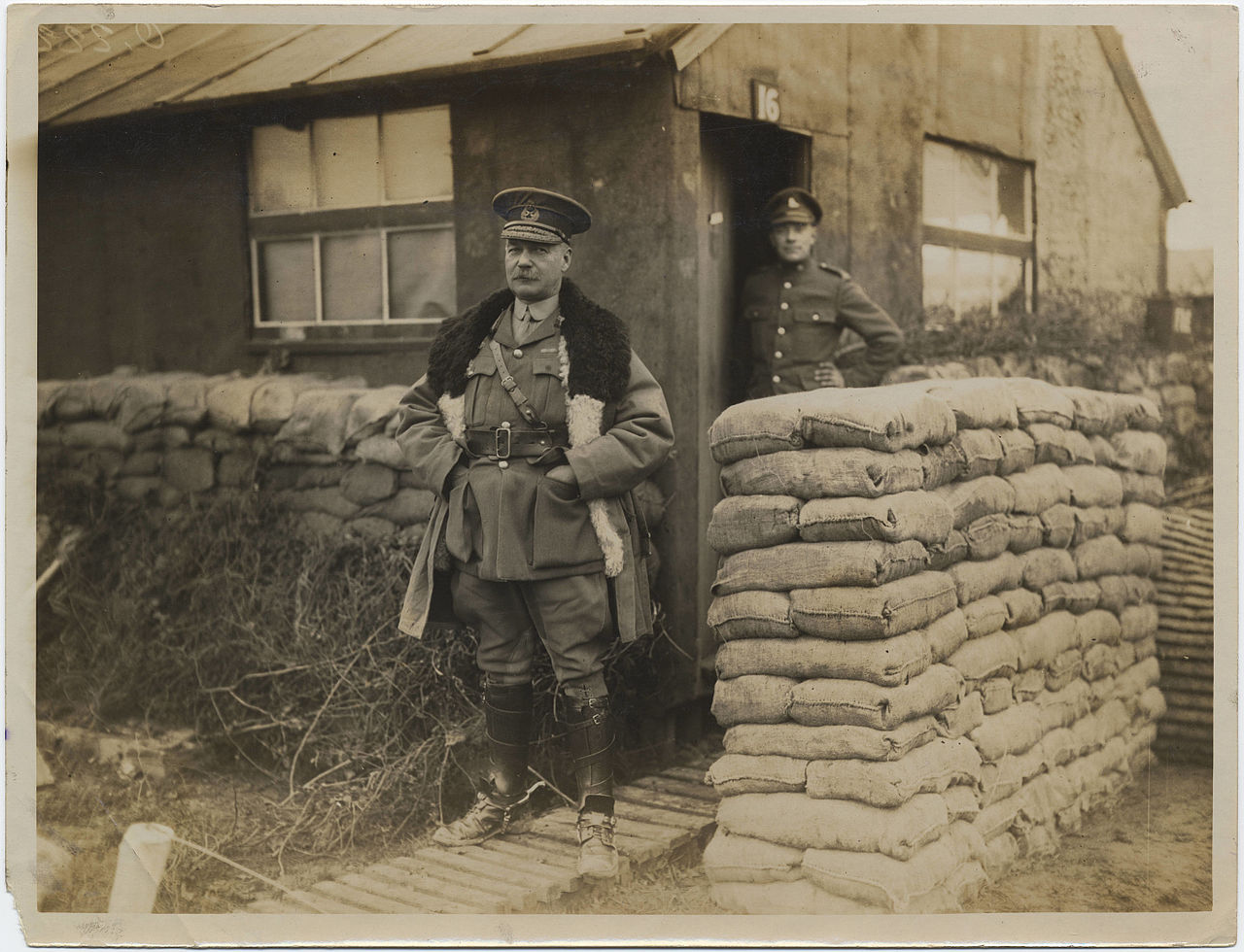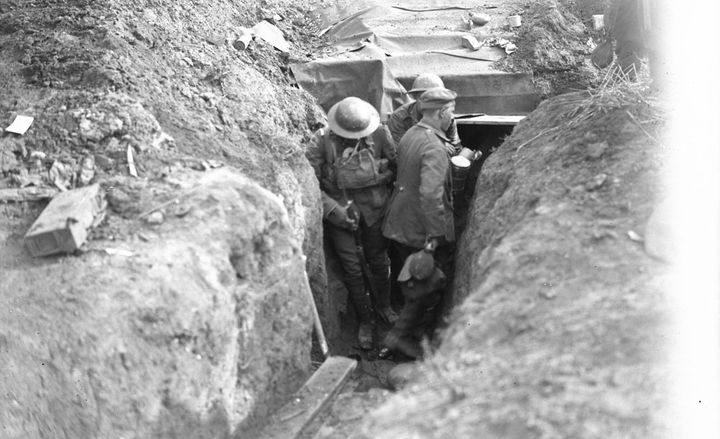
A Journalist and Soldier - Sir Edward Whipple Bancroft Morrison
SIR EDWARD WHIPPLE BANCROFT MORRISON - KCMG DSO
Section 29, Lot 16 N
Edward Whipple Bancroft Morrison was born to Scottish immigrants in London, Ontario on July 6, 1867. He was involved with the military all his adult life, first with the Militia. He served with distinction in two wars; first in 1900 in the Boer or South African War where he was an artillery lieutenant commanding the Left side of D Battery (it’s worth noting that his close friend, John McCrae - writer of poem In Flanders Fields - commanded the Right side of D Battery).
He was awarded the D.S.O. (Distinguished Service Order) in 1901 for “skill and coolness” in saving guns during a retreat. In between wars, Earl Grey tasked Morrison with organizing the Boy Scouts in 1910.
Then, from 1914 to 1919, Morrison served first as Lieutenant- Colonel commanding the 1st Brigade, CFA (Canadian Field Artillery), then the 2nd Brigade CFA and finally, late in 1916, he was promoted to Brigadier-General commanding all Canadian artillery until the end of the war and demobilization, and was promoted again to MajorGeneral, and knighted.
In Flanders Field Morrison and John McCrae served in the First World War, where McCrae desperately wanted to be on the battlefield. He wasn’t content to serve as a surgeon; he also wanted to serve his country as a soldier. John McCrae really did want to be a gunner. He would go out and fire a gun in medical uniform. It would have been against the Geneva Convention. It was his friend Morrison who developed the regimental surgeon position. McCrae was dressed in his artillery uniform for most of his time in France.
One account surrounding the publication of In Flanders Fields is that McCrae had discarded the poem. It may have been Morrison who picked it up and submitted it for publication.
The poem was initially rejected by the London Spectator before being accepted by Punch magazine, which first published it on Dec. 8, 1915. Within months, it became one of the most popular poems of the war. Library and Archives Canada has a copy of the poem, written in pencil on yellow paper, dated Dec. 8, 1915, signed by McCrae and donated by Morrison. Despite differing accounts of exactly how In Flanders Fields came to be written and published, McCrae couldn’t have crafted it, if not for Morrison.1
He completed his war service as Major-General Sir Edward Morrison. MajorGeneral Morrison commanded the Canadian Artillery at Vimy Ridge, Hill 70, Passchendaele and the pivotal battles of “The Last 100 Days,” that brought WWI to an end.
The final 100 days of the First World War — from 8 August to 11 November 1918 — came to be known as the Hundred Days Offensive. But the Canadian Corps' significant contributions along the Western Front generated the name "Canada's Hundred Days." During this time, Canadian and allied forces pushed the German Army from Amiens, France, east to Mons, Belgium, in a series of battles — a drive that ended in German surrender and the end of the war.
In the back of his World War One Officer’s Book there is a hand-written accolade by the Canadian Corps Commander at the end of WWI: “I desire to record here my appreciation of the outstanding qualification of Maj Gen Morrison, CB DSO as a gunner. He knows his work thoroughly and loves a fight. He is keen, energetic, gallant, capable and loyal. He is a good organizer, farseeing, fair and just.” - A.W.Currie Lt Gen [Canadian general, and Commander of the Canadian Corps, General Sir Arthur Currie].
Edward Morrison’s other career was that of a journalist and editor. He began as a reporter in 1888, first with the Hamilton Spectator, eventually becoming its editor.
On July 1st, 1898 he then moved up to become the editor-in-chief of the Ottawa Citizen until 1913, just before World War One. Upon returning from Europe after the war, in 1919 he became Deputy Inspector- General of Artillery and was on a committee to reorganize the militia. In 1920 he became Master General of Ordnance and served as Adjutant-General in 1922-1923.
He retired in 1924 and died the following year, May 28, 1925 in Ottawa.
1. Kathy Rumleski, We owe a Londoner for McCrae's famous poem, The London Free Press, Nov 6 2015. https://lfpress.com/2015/11/06/rumleski-we-owe-a-londoner-for-mccraes-famous-poem


